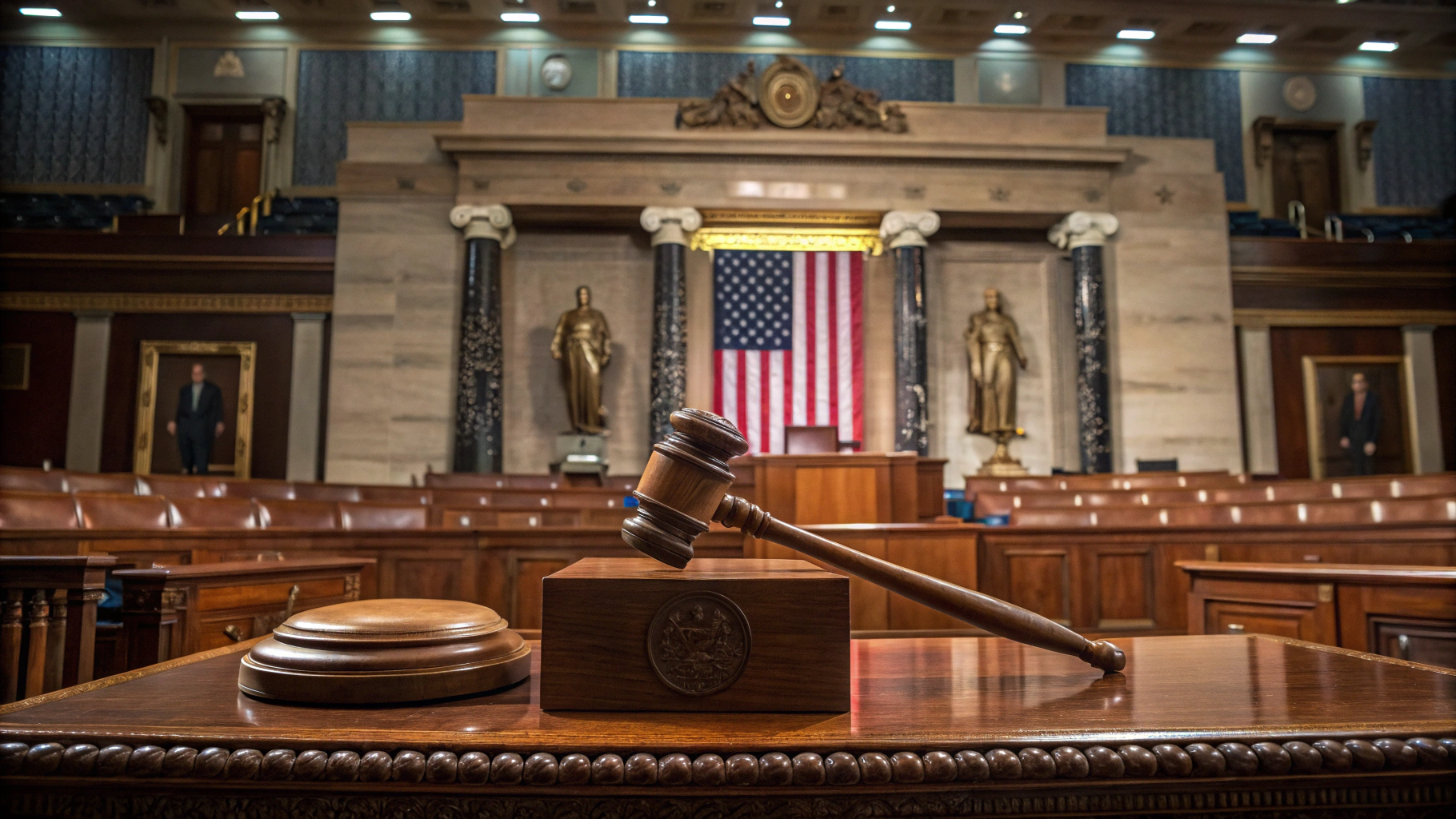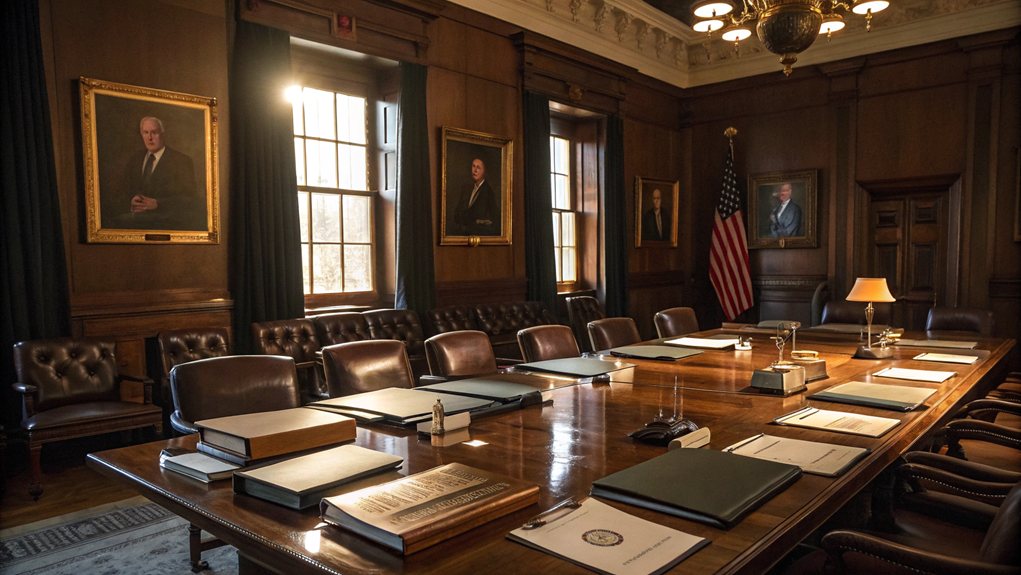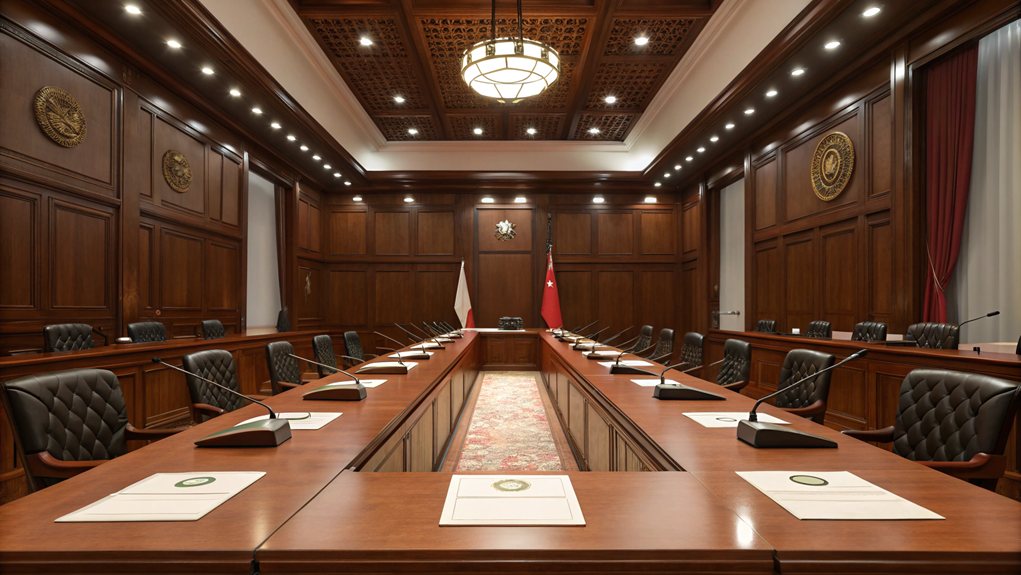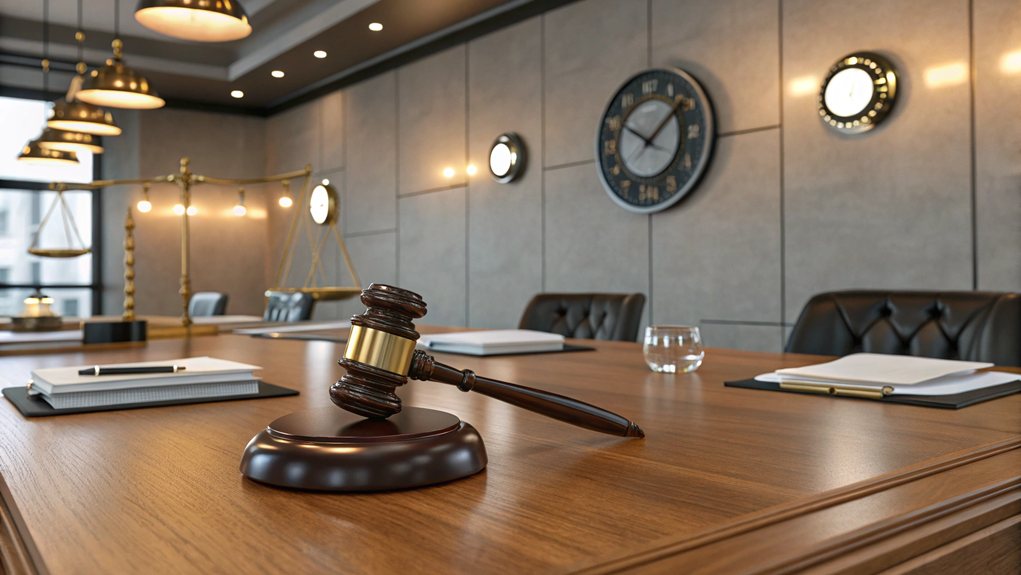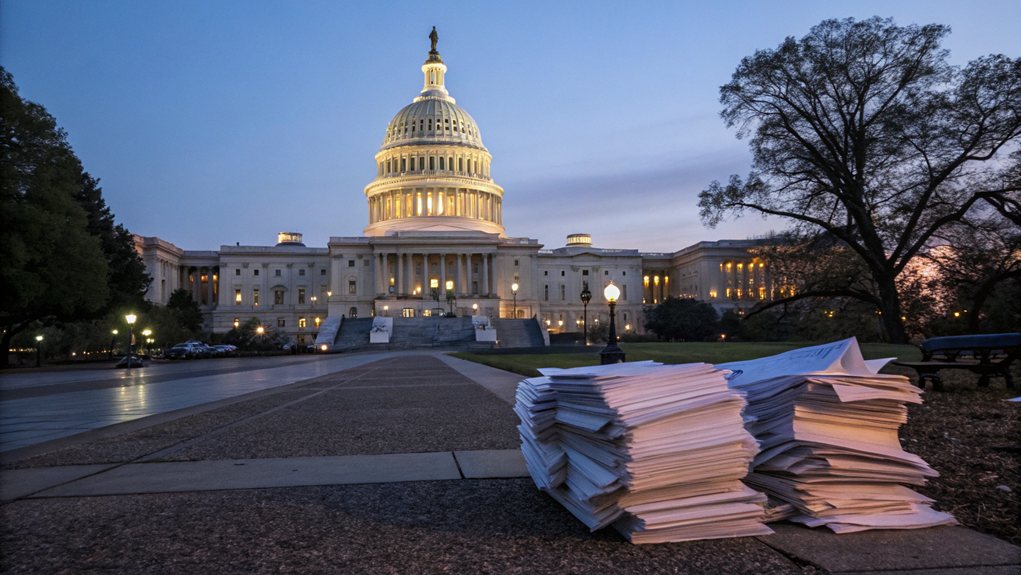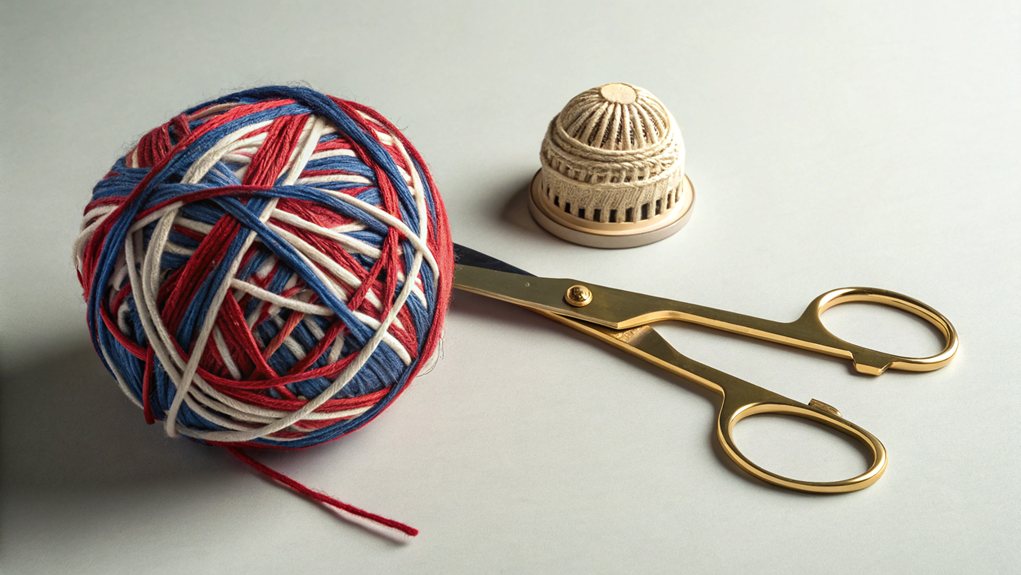The Speaker of the House isn't just some figurehead. They run the House, keep things in line, and control the legislative agenda. Elected on the first day of Congress, they have to score an absolute majority, ideally cozying up to party favorites. This role has evolved over time from a ceremonial gig to a power player in modern politics. The Speaker makes sure bills hit the floor and decides who talks when. Wanna know more about their game? Keep on exploring.
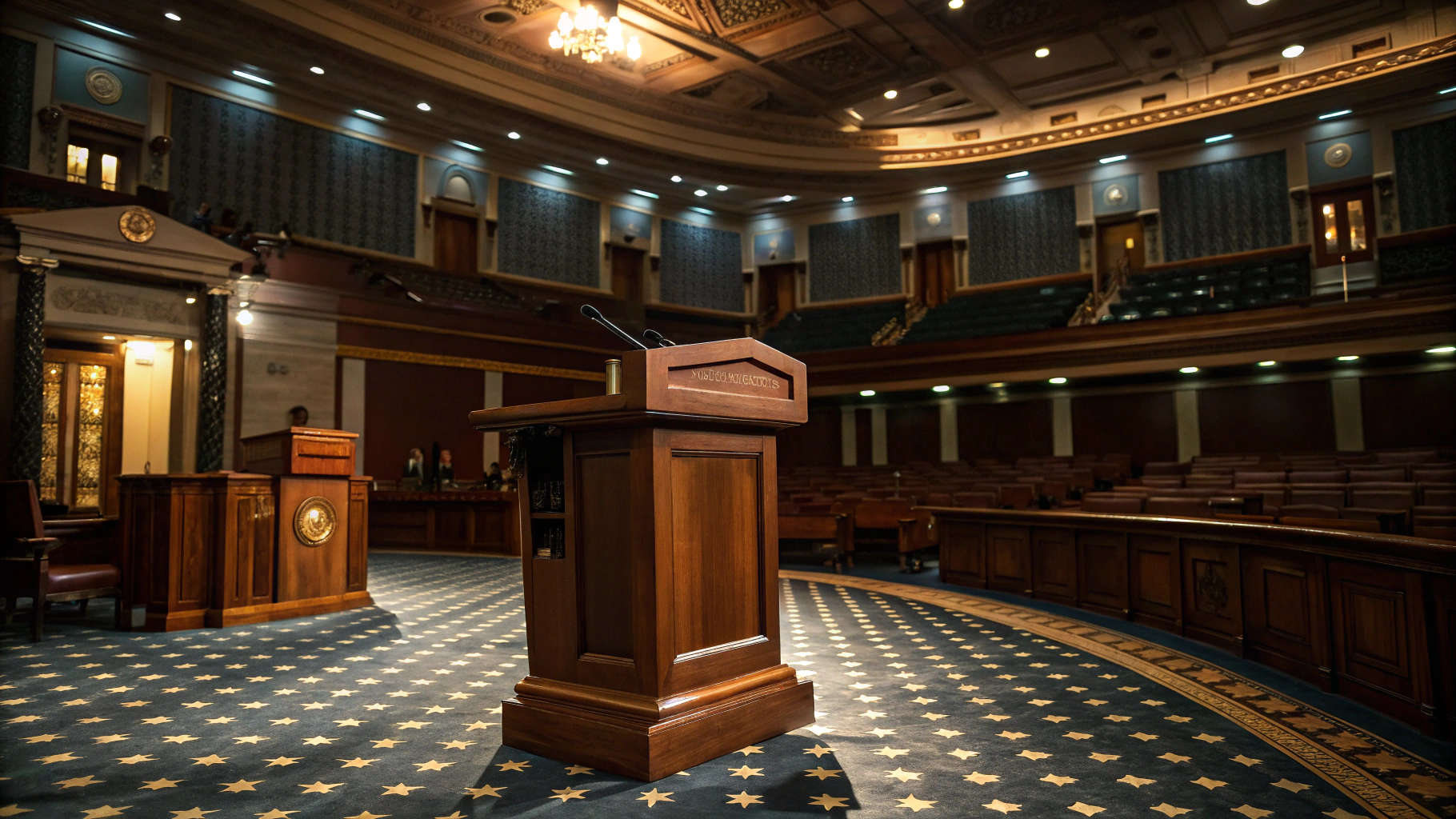
The Speaker of the House wields a surprising amount of power in the chaotic world of American politics. This isn't just a fancy title. The Speaker presides over the House of Representatives, keeping order and decorum—like a referee at a chaotic football game. They lead the majority party, appoint committee members, and even decide which legislation gets a shot at a vote. Talk about having a finger on the pulse of the nation!
Elected on the first day of each new Congress, the Speaker's selection isn't just a walk in the park. It's a roll call vote where each party throws their candidate into the ring, and most members vote along party lines. You need an absolute majority—no pressure, right? Technically, the Constitution doesn't require the Speaker to be a member of Congress, but let's face it, that would be a wild twist. The Speaker's role has historically evolved over time, transitioning from a primarily ceremonial position to one of substantial influence and power within Congress.
Now, onto those powers and influence. The Speaker controls the legislative agenda. They decide what bills get to strut their stuff on the House floor, appoint members to the Rules Committee, and set the rules of debate. They can even choose the order of speakers, which is basically like deciding who gets to talk first at a family dinner. And yes, they interpret House rules—because who doesn't love a good rule interpretation? The Speaker's ability to choose members for various committees allows them to shape the legislative priorities of the House. Additionally, the Speaker is second in the U.S. presidential line of succession, which means they hold a critical position in national leadership.
The Speaker also has some serious administrative duties. They oversee the House staff, run the audio and video systems, and even manage communications with the president. Plus, they're second in line for the presidency after the vice president. If the top two positions suddenly go vacant, guess who steps up? That's right, the Speaker. Talk about a high-stakes game.
Historically, this role has evolved—initially, it was pretty ceremonial. But now? The Speaker is a powerhouse, steering through the partisan waters of modern governance. It's a tough gig, but someone's got to do it.
Frequently Asked Questions
How Is the Speaker of the House Selected?
The Speaker of the House is selected through a riveting process.
First, party caucuses nominate candidates—sounds exciting, right? Then, the entire House takes a roll call vote, needing a majority.
If no one wins? They keep voting—like a never-ending game. The clerk gets to preside over this spectacle.
And fun fact: the Constitution doesn't even require the Speaker to be a member of the House, but that's never happened. Go figure!
What Are the Qualifications to Become Speaker?
So, what are the qualifications to become Speaker? Spoiler alert: there aren't any specific ones.
Seriously, anyone can be chosen, as long as they're picked by the House. No fancy degrees or experience required. Just a majority vote—usually 218 votes, unless some members decide to take a day off.
Historically, though, the Speaker has always been a member of the House. Not exactly rocket science, right? Simple enough!
Can the Speaker Vote on Legislation?
Absolutely, the Speaker can vote on legislation.
But guess what? They usually save that power for the nail-biters—the bills that really matter.
Most of the time, they just sit back, orchestrating the chaos of the House while others do the heavy lifting.
When the Speaker does vote, it can swing the outcome, especially on close calls.
How Does the Speaker Influence Party Decisions?
The Speaker wields serious influence over party decisions. They determine which bills get a spotlight. That's power, folks.
Appointing committee heads? Yup, that's on them too, shaping who gets to push what. They set the agenda, often after cozy chats with party leaders.
And when it comes to voting strategies? The Speaker's got a hand in that pie too. It's a game of chess, and the Speaker is moving the pieces. Checkmate, party.
What Happens if the Speaker Resigns?
When the Speaker resigns, chaos often reigns. The House hits pause on everything. No legislative business can happen.
Enter the Speaker Pro Tempore, the temporary stand-in with limited power. They can manage some basic tasks but good luck getting real work done.
Party tensions bubble up as factions scramble to find a successor. The whole process can feel like a circus, with the public watching closely.
It's not pretty, folks.
